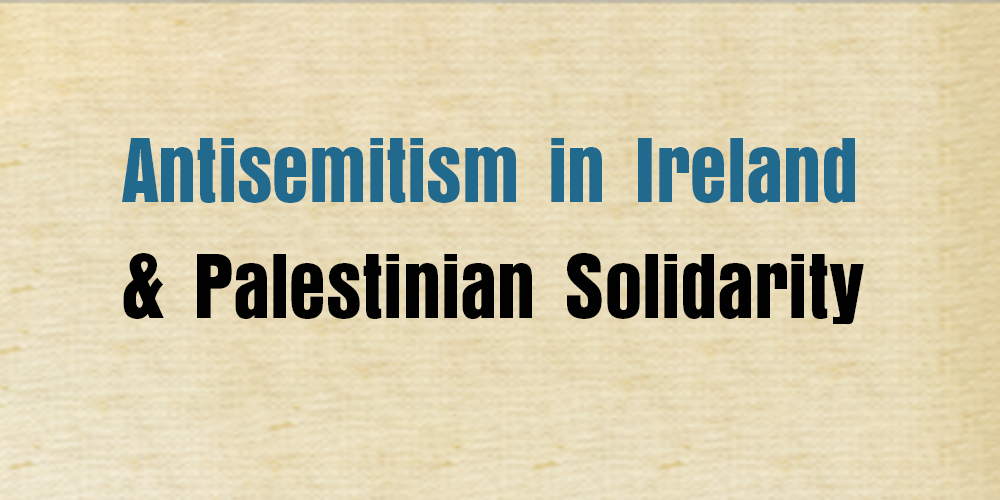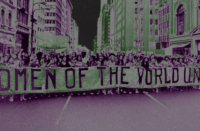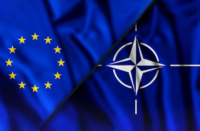This year’s Holocaust Memorial Day in Dublin was a memorable one, with President, Michael D Higgins accused of antisemitism by the Ambassador for Genocide, Dana Ehrlich and by members of “the Irish Jewish community”. The accusations were made because Higgins dared to say that the phrase “never again” also included Palestinians. The accusers claimed (correctly as it happens) that such a sentiment is antisemitic according to the IHRA definition of antisemitism, newly adopted by the Irish government.
These accusations have become commonplace, but the attacks also extended to Jews, such as the members of the Holocaust Education Initiative who invited the President. And this begs the question as to who “the Jewish community” is. It’s difficult to avoid the fact that over the past year, Jewish communal institutions have been silent, or more often, cheered on the architects of genocide in Gaza. It’s not that there aren’t anti-genocide Jews, it’s more that “the Jewish community” is being constructed to exclude them.
One way this community of exclusion has been constructed is through social science surveys. There’s a survey circulating around various WhatsApp groups now that’s worth discussing, not because it’s unusual, but because it’s indicative of many others.
The stated purpose of the survey is “Assessing the Impact of 7 October on Irish Jews”. It’s not-so-hidden purpose is to lay down claims that Irish Jews are suffering from an antisemitism that derives from Palestine solidarity. This is done by asking leading questions and excluding any consideration that Jews have been impacted by Israel’s campaign of genocide.
The key question in this survey is “Has your behaviour been affected as a consequence of 7/10 and its aftermath” (q.4). To answer, you tick responses from, “I avoid the city centre when I think there will be a pro-Palestine march” all the way to “I feel less comfortable…”, “I feel less safe…”, “I feel isolated…” After eight such “options” comes the possibility of saying one’s behaviour or position hasn’t changed or “other”.
Well, my behaviour has changed, as has that of most my Jewish friends. Just not in a way this survey recognises. We’ve been sickened at the horrors in Gaza. Like many of our non-Jewish friends, we’ve been busying ourselves in meetings and actions and protests opposing Israel’s campaign of genocide. But we don’t exist. The only Jews who exist in such surveys are those who don’t care about genocide, who don’t see it. Jews like us – in the US, it’s maybe a third of Jews – are outside the boundaries of “the Jewish community”. This is why this phrase belongs in scare quotes.
The survey continues to ask about antisemitism and whether it’s worse in Ireland than elsewhere (q.8). There’s also a question to prod respondents to answer whether they feel Jews are better off in other countries than Ireland (q.7).
So, what affects Jews according to such surveys? Antisemitism and that’s it. Patients burnt alive in tents don’t affect us. Starving children don’t affect us. Israeli bulldozers decorated with children’s toys from the houses they demolished. None of this matters, apparently. Jews, as constructed by such surveys, don’t care about human rights. We haven’t been affected by ICJ rulings on genocide and apartheid, nor ICC rulings on war crimes. We are constructed, in other words, as narcissistic monsters.
It’s not by any means a well-designed survey. Apart from the leading and incomplete questions, the survey, circulating around WhatsApp, is open to anybody with the link. There’s no way of checking whether they’ve answered before or even whether they’re Irish Jews. Previous surveys of this sort had Zionist groups urging their members to “vote early and vote often”.
The survey might be worthless, more push marketing than social research, but don’t be surprised if its breathlessly quoted in a few months’ time by media outlets. X% of Irish Jews feel unsafe, X% are scared by solidarity demos, X% think that Ireland is worse for antisemitism than elsewhere and want to leave. The results will lead to the obvious conclusion: Ireland needs to stop antisemitism, which is understood as Palestinian solidarity, or Jews will leave. Such surveys, whose purpose is less to uncover truths than to manufacture them, can then be used in the growing crackdown against those standing up for Palestinian rights.
But the other thing these surveys do, is that they serve to create consent for Israel’s actions among Jews. The authority of The Researcher is a real thing, long recognised by social sciences. In this case, this authority is used to tell Jews that only answers that ignore genocide are within the acceptable parameters of “the Jewish community.” These answers will not only be fed to the media, they will also be fed back to Jews, to show us how under siege we are, to show how dangerous Palestinian solidarity is to us. As for the growing numbers of Jews engaged in Palestinian solidarity. Outside the parameters of “the Jewish community”, we too are being constructed as a threat.
Antisemitism is real and like all other forms of racism, is growing in Ireland. We don’t tackle it by lying about it. We don’t tackle it by accepting the claims of genocidaires that criticising Israel is antisemitic. And we don’t tackle it by assuming, as the mainstream media does, that Jews and Israel are as one. We tackle it by solidarity across racial divides, and one way we do so is through solidarity with Palestine.






